Last Updated: February 14th, 2020
If you are thinking about pursuing a career in photography, there are a lot of routes you can go.
In our opinion, yes – photography is a good career if you are willing to put in the hard work to make it happen.
The good news is: there are many opportunities for photographers out there.
The bad news is: it can be tough to find the ones that are really worthwhile.
With this in mind, the question of whether or not photography is a good career route is pretty open ended. You can get into photography in so many different ways – both through traditional and non-traditional routes.
Some people get a college degree in photography and translate that into teaching photography classes. Others might start their own photography business. Even more people take a more blended approach where photography is just one way they use to make money, while working a second job or finding alternative income sources through blogging and other means.
In this post, we’re going to be looking in depth at photography as a career option.
We’ll show you some of the opportunities that are out there, talk about how much they pay, go over how we’ve turned photography into a career for ourselves, and give you some resources to help guide you in the right direction if you feel you want to pursue photography as a job.
Looking at 10 Photography Career Paths
There are so many styles of photography that the options can feel endless. Within each style, there will be opportunities to work for yourself, freelance, or work directly with already established companies. In some cases, you might even be able to find work with large Fortune 500 organizations, where a more stable job, income, benefits, and other perks might be easier to rely on.
For now, we’ll just talk broadly about what careers in these photography styles have to offer.
Note: before we begin, just keep in mind that some of these niches of photography will overlap with others. For example, weddings and events are very similar in practice, but what goes into marketing and so on will differ how you approach them.
1). Wedding Photography
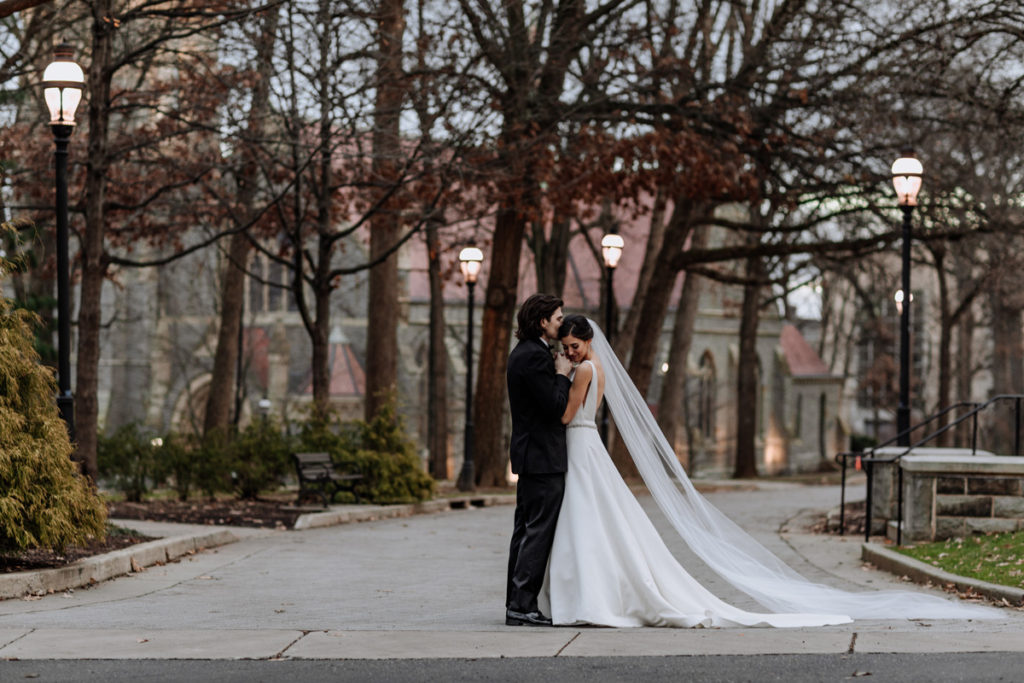 Average Salary: $45,947
Average Salary: $45,947
The wedding industry is very competitive and very lucrative. It is absolutely possible to make a viable career when working in wedding photography. We have done this ourselves as we grew our wedding photography business from nothing to a career in about 3 years. With the right dedication and skills, it’s still an industry that will be around for years to come.
Most wedding photographers will be starting their own businesses. This is the route that has the most earnings potential. Most other roles will be freelance jobs, assisting and second shooting for already established wedding photographers.
Related Wedding Photography Posts:
- How to Photograph a Wedding Alone – 11 Tips for Success
- The Wedding Photography Booking Process in 10 Steps (+ Helpful Tips to Secure More Clients!)
- What Canon Lens is Best for Wedding Photography?
2). Portrait Photography
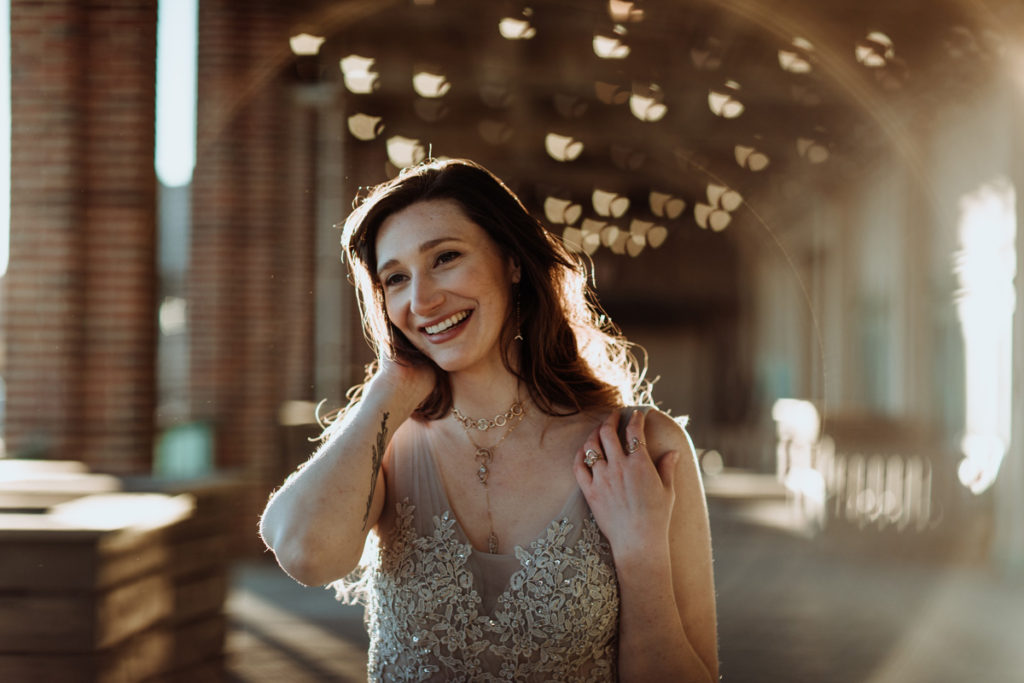 Average Salary: $43,427
Average Salary: $43,427
Portrait photographers will likely always be in demand. Your potential client-base is really anyone and everyone – even including pets! For the most parts, people get portraits taken to capture specific life events (like high school senior portraits), to commemorate the family (ie: family portraits), to celebrate milestones in love (like engagement photos), and take professional photos to use for career purposes (headshots).
Some portrait photographers will start their own businesses. It’s entirely possible to do portraits in addition to other types of photography too (such as weddings). Other photographers may find themselves working for an already established portrait photography studio – which is most likely to be one of of the “normal” jobs you might find in this industry. This may be a local studio, or working for a big box store like Wal-Mart of JC Penny, that may have photo locations near you.
Related Portrait Photography Posts:
- The Ultimate Portrait Photography Guide
- The Ultimate Couples Portrait Photography Guide
- Smoke Bomb Photography – How to Nail Art Portraits
3). Photo Journalism
 Average Salary: $39,571
Average Salary: $39,571
The pictures accompanying newspaper articles, when done professionally, are being created by photo journalists. Whether it’s documenting bad weather, war zone conflicts, or just doing a fluff piece for a local paper taking pictures of kids sledding – photo journalists cover it all.
To be honest, this was once a more in demand career path for photographers, but in recent years there has been a dramatic shift in these photo sources – considering there tends to be people with camera phones on hand wherever an event is unfolding. Opportunities today will be more competitive, and likely lower paying than most other fields of photography. 9-5 jobs will heavily for be newspapers and other related outlets, and there will be competition with freelancers who take photos and sell them directly to these sources.
4). Commercial Photography
 Average Salary: $45,499
Average Salary: $45,499
Commercial photography is a broad category of photo work that involves taking pictures for commercial purposes. In practice, this translates into product photography, photos for advertisements, real estate photography, and the like.
Commercial photography jobs will either be for large corporations needing product photography on a consistent basis – otherwise, it will be more of a freelance job. An established commercial photographer would ideally have an online portfolio showing off their work (and who they have worked for).
Related Commercial Photography Posts:
5). Landscape/Nature Photography
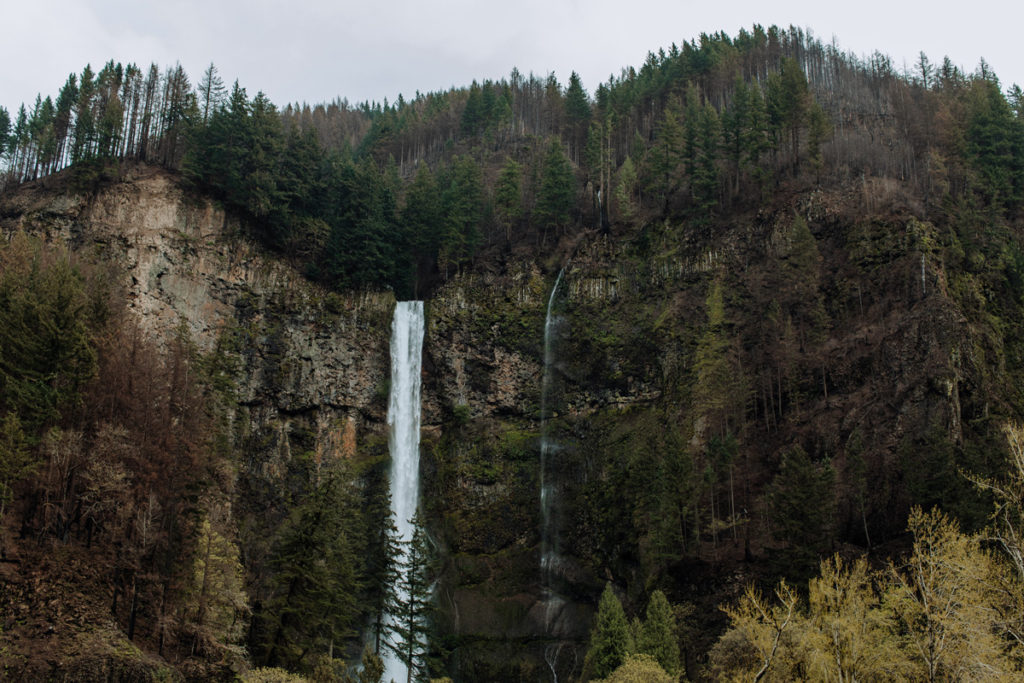 Average Salary: $39,273
Average Salary: $39,273
Photographing landscapes is probably one of the most ideal jobs in photography (by our personal standards). The idea of just traveling around, documenting our travels, and taking pictures of the world around is pretty intoxicating. In practice, it is a tough niche of photography to break into.
There are a few ways you could wind up as a landscape photographer as a career – and all of them require a good deal of effort and even some luck.
The top landscape photographers may have the fortune of working for large organizations like National Geographic, who send people out into the field to document landscapes, nature, and wildlife. This is probably the top 1% of jobs – but what do the other 99% do? Landscape photography can be sold online in a variety of ways. These photographers may also expand their offerings to include digital photography presets for software like Lightroom. Most often, the actual photography work is supplemented by offering educational opportunities to other people such as “in real life” at a college institution or self-hosted through a platform like F-Stop Tours.
Related Landscape Photography Posts:
- How to Take Good Landscape Photos
- The Extremes We Go to For a Shot – A Landscape Photographer’s Tale
- What MM Lens is Best for Landscape Photography?
6). Lifestyle Photography
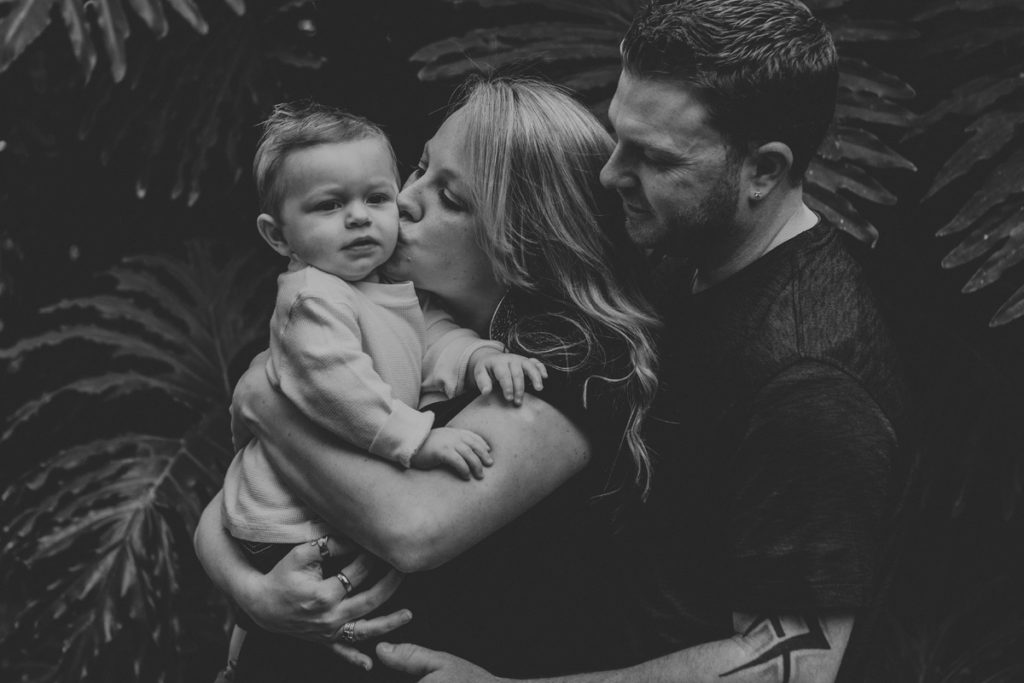 Average Salary: $29,440
Average Salary: $29,440
One of the main goals of lifestyle photography is to capture people’s lives in an organic, non-invasive, and often candid manner. If you feel like that could apply to most types of photography, you are right!
Lifestyle photography is a term that has become popular in just the past few years from what we have seen. In some ways, it means next to nothing, while to the people who read it – it conveys something meaningful and powerful that leads to new client bookings for the photographer themselves.
In practice, we are lifestyle photographers as our approach to weddings, portraits, and the like meet those 3 criteria set above: capture organic and candid moments, and not make things super stiff through awkward posing. That’s not to say there isn’t some forethought or orchestration of things. In fact, we use a good amount of “unposed” posing to help setup situations where people are able to express themselves naturally in front of the camera. It’s an interesting art in itself.
The job opportunities in the world of lifestyle photography will mostly be self-created. Generally, people will be hiring you to take portraits or photograph their wedding (or another similar event where naturally occurring interactions are happening). You’re opportunities here will be better as you grow your portfolio and become more established.
Related Lifestyle Photography Posts:
7). Fine Art Photography
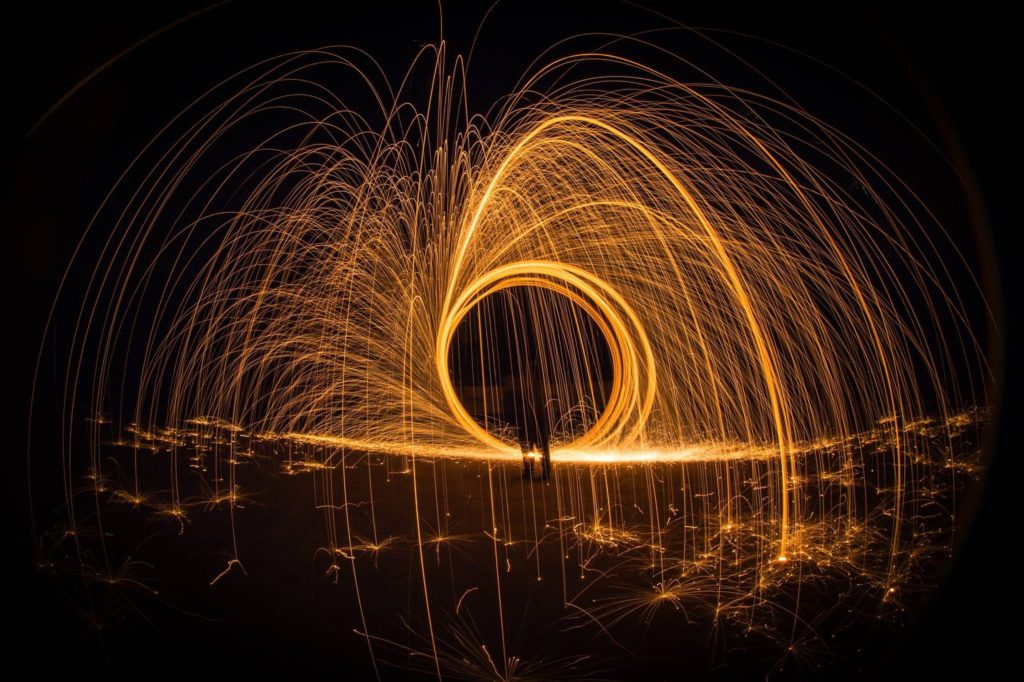 Average Salary: $43,370
Average Salary: $43,370
Fine art photography can be difficult to properly define, as it does overlap with just about every style of photography and subject matter. The major difference is found in the mindset behind the photos being taken. While wedding photographers and photojournalists may be out to simply document an event (*even if done so artistically), fine art photographers are looking to express an idea, a message, or an emotion (thanks Wikipedia!).
Fine art photographers will often be taking on commissioned jobs or selling their work independently. With enough popularity, it is entirely possible for the best fine art photographers to make a great living off their work, but this is no doubt a challenging feat. However, unlike the days of old where you would need to be present in a major metropolitan art scene to have anything like that become possible, online resources like Saatchi Art allow you to sell your work to an interested audience.
8). Scientific Photography
 Average Salary: $44,720
Average Salary: $44,720
Scientific photography takes the takes the art of photography and applies it to research, medical, industrial, and academic disciplines. Some of these shots will be for the simple reason of documenting objective truths, while other photographs will be used to go along with releases to the public that help make them more interested in scientific content.
Specialty styles of photography will more frequently be pulled on in this area, such as macrophotography (photography of small things), spectral imaging (ultraviolet photography, infrared photography, and thermal imaging), etc.
You will most likely want to start your search for jobs by looking at scientific research and laboratory companies.
9). Event Photography
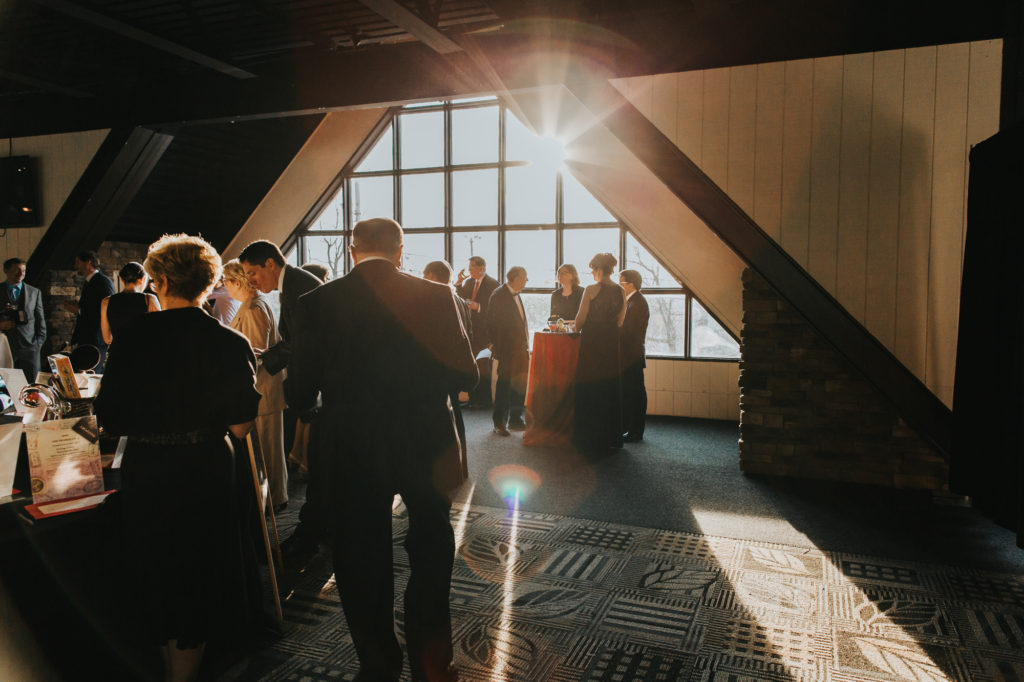 Average Salary: $41,636
Average Salary: $41,636
Event photographers will have a similar career outlook as wedding photographers – except the audience will by much more diverse. No doubt, events range from birthday parties & family get togethers to corporate & charity events. As you might imagine, there is more income to be found in bigger events hosted by companies (who have money to spare).
Just like wedding photography, getting into shooting events will require you to have your own business (if you want to make a full time living doing it). Otherwise, you can find assistant and second shooting gigs where you will help out a more established photographer as a freelancer.
10). Crime Scene Photography
 Average Salary: $34,070
Average Salary: $34,070
Crime scene photography (also known as: forensic photography) is an interesting career for photographers because it is, by design, an outlet for photography to be used to document the facts of a crime. This is a position that doesn’t require formal education, but most often candidates with backgrounds in photography, police work, investigators, etc. are more preferred given the type of things you will be seeing.
We did a broad search online to see what types of jobs were currently open in the United States, and very few came up. The most spot on was associated with the FBI – which you can be sure will require a high level of qualification. Other opportunities may exist if you get in touch with police departments in your area, especially in more developed metro areas.
Note: All average salary estimates from Payscale.com and Zip Recruiter.
What is the average salary for photographers?
The average salary for photographers is 40,280$ in the United States as reported by the U.S. Bureau of Labor Statistics. This puts the average professional photographer in the middle class – where you will generally have enough money to live on, but not necessarily enough to do everything you want in life.
Depending on the route you decide to take in photography, it can be a rewarding job that enables you to do things like travel as a business expense.
We recently discussed with our CPA (Certified Public Account) if it’s possible to travel and write our expenses like flights, lodging, car rentals, etc. off as an expense – and, the answer was: “yes! – as long as you are actively taking pictures and using those pictures in some way to benefit your business.”
We mention this because, if you are running your own business or working for one that is having you travel, you may be able to take advantage of these tax deductible expenses – lowering how much you are liable to the government for.
Overlapping Career Options
 There are some jobs out there where you might find yourself using a camera to take pictures to do some things, but you won’t be a “photographer” by trade. These might be good choices for you if you are looking for to use your artistic and photographic skills without needing to commit to a full on career in photography itself.
There are some jobs out there where you might find yourself using a camera to take pictures to do some things, but you won’t be a “photographer” by trade. These might be good choices for you if you are looking for to use your artistic and photographic skills without needing to commit to a full on career in photography itself.
On the surface, for many of these jobs, one of the big appeals is they tend to be more stable than most photography jobs out there.
1). Graphic Designer
Graphic designers mostly create digital graphics for a variety of purposes. In the professional world, they are generally for commercial purposes, so for advertisements, products, magazines, logos, etc.
Where photography may come into play once in a while is when product photos are needed, inspiration is needed, and the like. In our world, Jes’ has worked as a full time graphic designer since graduating college, and has put her photography skills to use on occasion in this context.
2). Real Estate Agent
Picture this – you really like the idea of selling real estate as your primary business, but decide to take house photos yourself. This can be one way to cut out the need to pay for real estate photography (if you decide to start your own real estate business), and still integrate your love for photography with a well established career path.
3). Photo Retoucher
Photo retouchers will be using a camera less, but interacting plenty with photographs taken by others. In our little world, we do extensive photo editing and retouching (it probably consumes about 40% of our working time!). This is something that can be outsourced to others who are very much into editing and retouching photos.
Retouching opportunities are actually quite extensive. They range from working for a company directly to take care of all their retouching needs, to being a freelancer taking on gigs for photographers and companies directly. Platforms like ShootDotEdit are specialty organizations with this career aspiration in mind.
Define what a living wage is for you
 When talking about any career choice you may be considering, it’s important to take a look at how much you can expect to earn. There are, no doubt, people who will make more-or-less depending on a number of factors like location, skill level, etc., but we have average wage statistics to help guide our decisions.
When talking about any career choice you may be considering, it’s important to take a look at how much you can expect to earn. There are, no doubt, people who will make more-or-less depending on a number of factors like location, skill level, etc., but we have average wage statistics to help guide our decisions.
More important than how much money you are making per year is how much money you are going to be spending in one.
We are quite intense at budgeting – really a skill that has been essential when running a business – and it’s helped us to see how much we spend on a monthly/yearly basis.
It helps us project how much money we really need vs. just how much we are making.
After all, what’s the point of having all this extra money if we have no time to enjoy it (due to packed work schedules) or if it’s just going to sit in our savings account?
Everyone’s financial life is different, but you should aim to write out a list of your current expenses.
If you are planning any serious upgrades like buying a house, getting a new car, etc., you should also write out your projected future expenses. The things we make note of include:
- Mortgage payments
- Student loan payments
- Car payments
- Insurance payments
- Costs for food, entertainment, etc.
The focus of this article isn’t at all to give you financial advice, but if you are considering a career in photography – it’s important to think over how much money you will need to make. If an average wage of around $40k/year will work for you, then you will likely be comfortable with photography as a career!
How do I choose my photography discipline?
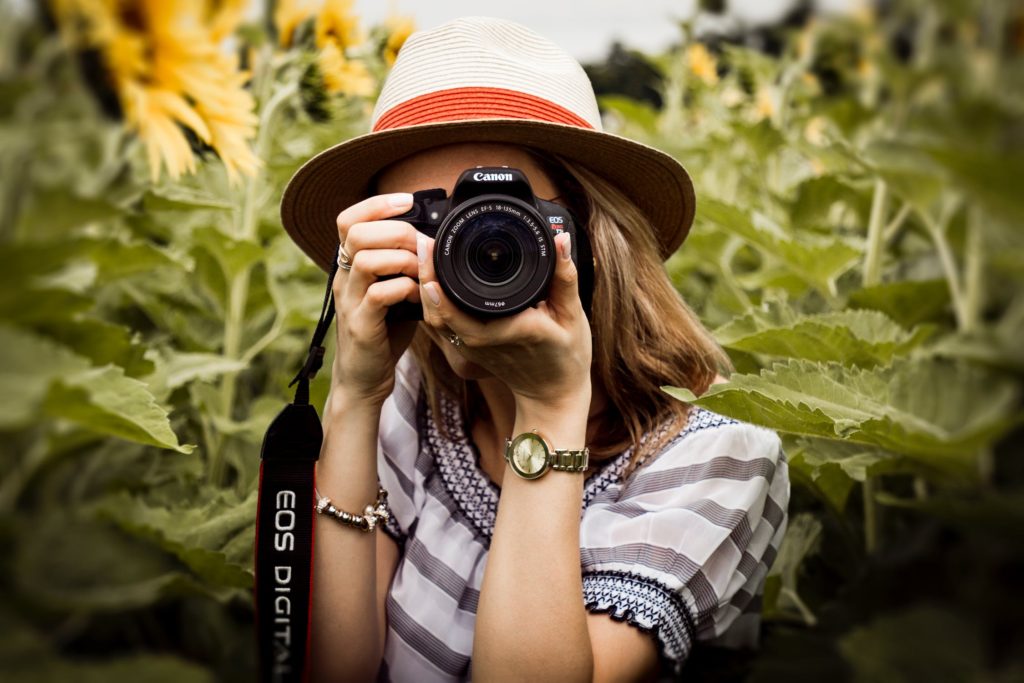 If you’re a good photographer, but not really sure what you want to take pictures of – this is a HUGE question for you.
If you’re a good photographer, but not really sure what you want to take pictures of – this is a HUGE question for you.
Some people just fall into their niche naturally. We have been in a relationship for the better part of the past 15 years, got married, and just like capturing the love and affection “people in love” tend to have for one another. It was easy for us when we landed on wedding photography. Heck, you can read more about us if you want and check out Hand and Arrow Photography (our photo business).
For others, it’s much more a question of what makes sense.
Some might prefer taking landscape photos, but see it as too much of a challenge to break into to make it as a career. For reasons like this, someone might decide to become a portrait photographer, where the potential to actually make some money is (at least a little bit) more likely.
If we needed to choose our focus in photography right now, and didn’t know what to do, we’d look at it like this:
- What’s the likelihood of me succeeding in this photography industry?
- What is required of me?
- Can I get a job with another organization, or do I have to freelance or start my own business?
- How much money do I need to live? And am I will to be financially uncomfortable at times?
- Lastly…what happens if things don’t pan out? Is there a backup plan or an easy alternative?
How you approach these questions (and probably the dozen others that may come to mind as a result), will be entirely up to you.
How do I prepare for a photography career?
There are 2, maybe 3, main things that you need to know to make photography a career.
1). Know your camera inside and out
A career in photography will require that you know how to use a camera well. This is a given.
If you’re not totally comfortable right now, good news! You will constantly be building upon your skills even as you become a professional.
We have a great starting point to learning a whole lot about photography in our giant (and FREE) resource: 101 Digital Photography Tips – A Comprehensive Guide for You.
Some people may also look into going to school to get a formal education in photography. A popular alternative is also taking inexpensive online classes like these by Digital Photography School:
- DFS Landscape & Nature Photography Course
- DFS Night Photography Course
- DFS Photo Nuts and Shots Course
- DFS Photo Nuts and Bolts Course
We actually have a ton other resources and recommendations to help you take your photography to the next level if you want to check out our Resources and Recommended Gear pages.
2). Get social with your peers
Networking is the key to most successes in the world of photography.
Building relationships with other photographers, potential clients, and other professionals in-and-around your niche will be very helpful. We did this early on (and still do it heavily – now with a network of people we like and trust).
There are many benefits to this.
In the long-term, it could lead to some referrals for new work, always a welcome sight. But more than this, it can lead to potential collaboration opportunities, can lend a lot of insight and education into things, and so on.
But…how do I find these people to connect with?
Thanks to the internet, it’s now easier than ever to connect with others. You will also meet people along the way as you work new gigs from time to time. Some common places online we use to meet other creatives:
3). Learn how to run a business (optional)
While not mandatory, many opportunities in photography will require you to start your own business.
From our combined research and personal experience, this is really the only route you can take to make a higher wage.
There will always be a wage limit when you are working for another company.
If you decide to run your own business, you can work as much (or as little) as you feel necessary. While success is not normally something that happens overnight, when you are able to charge high prices and book a lot of clients, it becomes a really special and life supporting thing.
We’ve put together some great resources to help you start learning about running your own business:
- 21 Myths of a Professional Photography Career – Explained!
- 50 Small Business Tips for Success
- 11 Photography Business Tips So You Can Make More Money
Case Study: How We Made Photography a Career
 For the last section of this post, we want to just lay it all on the line and talk about how we made our passion for photography into a sustainable career.
For the last section of this post, we want to just lay it all on the line and talk about how we made our passion for photography into a sustainable career.
Before we get into it, just keep in mind that there is no silver bullet for success. You sometimes need to do some digging and put in the hard work to make it happen for yourself. For sure, we would have rolled our eyes if we read that sort of thing a couple of years ago, but after putting in the hard work ourselves – we now know what it’s like to be successful in an industry we were told was over-saturated, too competitive, and too hard.
To help guide this conversation, we’re just going to answer some of the key questions you’re probably already wondering.
How did you get started?
We have been into photography since high school. Right now, we’re both a few years away from 30.
Photography has always been something we did as a hobby, and while we certainly had some thoughts when we were thinking about what we wanted to do with our lives as we prepped for college – we ended up going more traditional routes with the hope of finding more security that would come with office jobs.
Our inspiration to pursue photography (and specifically: wedding photography) was driven by planning our own wedding, working with our wedding photographer, and seeing the potential to both create something meaningful and earn a respectable living at the same time.
We began by just dipping our feet into the industry. We would shoot small and cheap weddings, as well as go along with other photographers to be assistants/second shooters. Basically – this was the equivalent of shadowing a professional in any industry. We were able to see the pros, cons, and decide if it is something we would want to pursue. And we did 🙂
What is one thing you wish you knew before you started?
The amount of time it takes to become properly established and “successful” is around 3 years.
We have lived this, and from talking to many other photographers who have had success, this seems to be what resonates very heavily as the real world truth.
Yes, there are absolutely some people who have success quicker. But they are out of ordinary.
If we’re being honest, we may have been able to ramp up a little quicker if we were not held back by having full time day jobs (you know: to pay bills and be responsible adults). Our choice of photographing weddings also came with the drawback of needing to wait upwards of a year to actual do the job we were booked for.
What have been the hardest parts about making photography a career?
There have been many difficult and trying times in our journey to becoming established professional photographers. A few of the most difficult things we’ve had to handle:
1). Having no time for anything else we would rather be doing or cared about.
Time management is very important when you are running your own business.
But, in the early stages especially, you are not always in control of your own time. It is not a 9-5 where you can just clock in and clock out. Having meetings with prospective clients, communicating via email, actually shooting sessions and weddings, doing all the business things, and so on add up pretty significantly.
As we worked full time jobs along with our full time business (for financial reasons), at our peak we were easily working 100 hour work weeks.
When having this type of lifestyle, it gets rather depressing as you have to turn down friends for hanging out, miss out on family get togethers, and so on.
2). Investing so much money early on
We stand behind the idea that you need professional quality gear if you are going to shoot at a pro level.
Because of this belief, we’ve intentionally put our money where our mouth is and invested heavily into new gear that would allow us to create better images for our clients. The quality of our cameras directly translate in better image quality, more reliability, and expanded functionality (like low light performance).
When spending tens of thousands of dollars on something that is not a sure thing – it feels like (and is) a gamble.
While some people may go the route of getting a business loan or wracking up an insane amount of credit card debt, we did not do this. We kept our day jobs to pay off our purchases while we booked more clients and steadily increased our prices.
Maybe the hardest thing about spending so much money like this is because we were not really buying the things we “wanted.” We were investing in our business, not enhancing our personal lives. Sure, we loved playing with the new camera gear – but the novelty wears off after you’ve spent $30,000 on these things.
3). Just being tired
Maybe most significant – we went through a long stretch of several months where we had no breaks. No days off.
Every day we would come home from our day jobs and sit in front of our computers – editing away at wedding galleries, answering emails, having phone calls, and so on. Every single day.
On the weekends, we’d go and shoot weddings. Sometimes, back-to-back weddings. Once, an engagement session Friday evening, a full day wedding on Saturday, and another full day wedding on Sunday. Then we went back to work on Monday because we didn’t have any more vacation time.
What have been the greats parts about making photography a career?
Running our own photography business does have a lot of benefits that you will not find anywhere else!
Some of these things are very simple, like not being tied down to a set work schedule and being able to take a vacation whenever we feel like it.
In addition, photography has given us opportunities to meet and work with people from all walks of life. Other photographers, farmers, ecologists, economists, lawyers, sales people, authors, even an NFL player – it’s been a crazy adventure.
Maybe most of all, as a husband + wife photography duo, having the time to spend with each other is one of the best things. Having worked jobs on opposite shifts in the past, it’s always been a goal to be around and available for each other. Our photography business has allowed us to achieve this personal goal.
There have been so many high points that it’s hard to put them into words. We live it every day!
Is it worth it?
The simple answer is: yes.
There are few things more rewarding that pursuing something you love to do for a living.
We have backgrounds where we have worked at a large number of jobs – for corporations, social services, and so on, but nothing compares. At the best of times, photography does not feel like work. With great clients, it’s like we’re just hanging out with some friends, taking photos along the way.
Photography has granted us opportunities to do things we wouldn’t have thought to do. It has been a big motivator to travel, too.
Looking back at everything we have done and achieved, it’s impossible to not be proud.
The time we put into making photography our career has absolutely been worth it!
So – how do you feel? Does photography seem like a career path you’d want to pursue? Chat us up in the comments!
Need some extra support or have some burning questions? You’re also welcome to reach out to talk with us directly via email. We’re happy to hear from you!